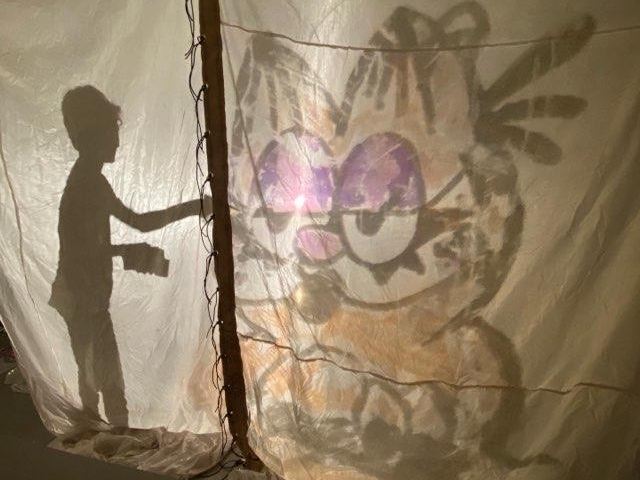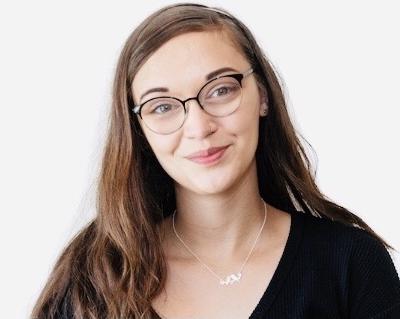
Through art exploration and peer connection, Single Carrot Theatre is creating a much-needed space for transgender and gender diverse youth in the Baltimore region this summer.
Earlier this month, the theater debuted Be You!—a series of summer arts and creativity camps specifically for gender diverse kids ages 6-18. In partnership with Chase Brexton Health Care, the two-week programs (the first two sessions concluded on July 21, while one more session is scheduled in Columbia July 25-August 5) are offered tuition-free, thanks to contributions from the Baltimore Community Foundation’s LGBTQ+ Fund and the William G. Baker Fund.
Throughout the program, kids have the opportunity to participate in a variety of ensemble activities—including theatrical performance, creative writing, and film and video workshops—to develop their own artistic voices and collaborative skills. The first week is all about telling stories through various mediums (think everything from theater to puppet making.) And in the second week, the participants decide what medium they’d like to use to create a culminating performance for family and friends.
“I think it’s a really scary time to be a trans kid, so giving them a safe space where they can show up as authentic as possible is a really beautiful and important thing,” says B Kleymeyer, a resident artist at Single Carrot and the creator of Be You! “The goal of this camp is to create a community between trans youth that are the same age, because often they are not aware other kids like them exist.”
Transgender youth between the ages of 13 and 17 make up about 2.08 percent of Maryland’s population, totaling about 8,000 individuals, according to demographic data from the Williams Institute. While the term transgender is used to refer to those whose gender expression and/or identity varies from their gender assigned at birth, gender diverse individuals may not fit into any specific identifying gender, or they may fit into many.
“We believe and know that gender is fluid,” says Single Carrot’s executive director Emily Cory. “We’re hoping to nurture participants’ creativity regardless of where they are on their journey and affirm gender identity through creative self expression.”
With around 45 kids registered to participate in the inaugural sessions, Cory says the response to the program is unlike anything Single Carrot has ever seen: “That makes it very clear this was missed in our community,” she adds.
Transgender and gender diverse youth are “a huge population that no one is creating programming for,” Kleymeyer explains. “[Growing up,] I would have wanted a space where I could be with other trans people.”
According to a 2022 national survey of LGBTQ+ mental health conducted by The Trevor Project, 73 percent of LGBTQ+ youth—including more than three fourths of transgender and nonbinary youth—reported experiencing symptoms of anxiety.
“Students are learning how to creatively express themselves as a way to process those feelings, which can be very toxic,” Kleymeyer says. “We’re also giving them a break from the onslaught of negativity, which is often exacerbated by their surroundings.”
Originally, Kleymeyer developed Be You! as a workshop in 2018 with the help of a grant from the Baltimore Community Foundation. But when the COVID-19 pandemic hit in 2020, the project was put on hold.
“During that time, we heard from people who wanted the program to be more than just a workshop,” Kleymeyer says. Taking that feedback from the community, Be You! was expanded into a two-week summer camp.
Each camp session is led by a team of experienced teaching artists from the LGBTQ+ community, which is an important aspect of the program, according to Cory. By employing transgender and gender diverse leaders, the youth will work with mentors they can relate to.
So far, Kleymeyer deems the camp a success: “The students became close friends in such a short period of time,” she says. “They’ve already done amazing, impressive work.”
“It’s nice being around adults who accept me as being trans,” one student participant adds. Another says they had fun being able to act and create their own stories. “It’s important to connect with other people like us, and to know that we’re not weird.”
Overall, Kleymeyer says the program emphasizes joy, creativity, and community. It’s not meant to center around the transgender or gender diverse experience, but rather be an art camp like any other, “where kids can be joyful with other trans kids.”
“I hope the campers walk away with some sense of companionship,” she says, “and confidence in their creative voices.”
